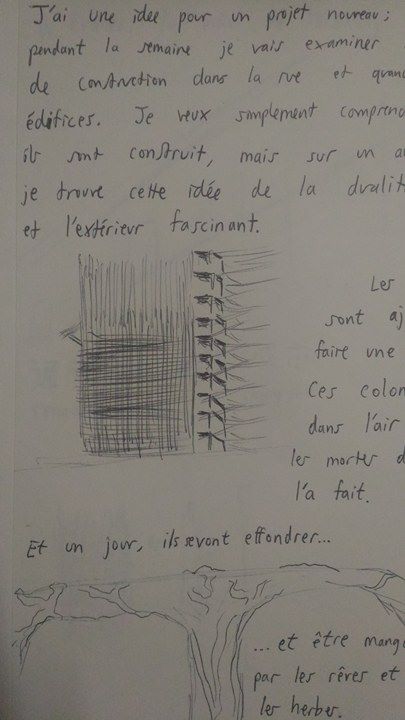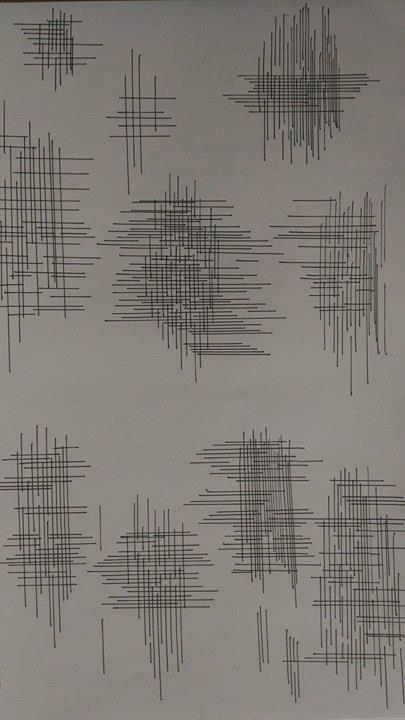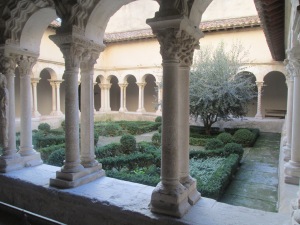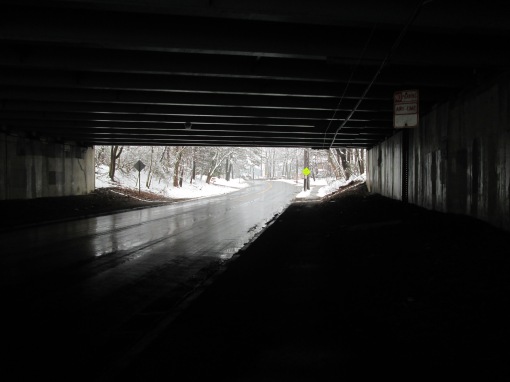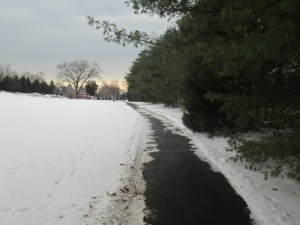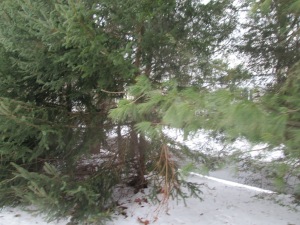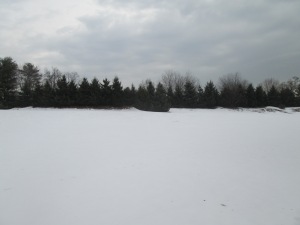A maroon teapot rests on a small square cloth, which sits on a smooth rock. The rock sits solidly on the beige cloth that spills over the long ends of the table. The top of one side juts thinly out. Three small, thin glasses stand on the cloth. One faces down. Corresponding white teacups face up on the table. Vestiges of 綠茶 remain at the bottom of one of them. Two cylindrical woven-basket seats sit by the table. A couch with more of the beige cloth and a blue pillow leaves a little space to walk in between. Sunlight makes its way in through the clouds, tall trees, and screen windows, reflecting on the white floor tiles to illuminate white pieces of paper clipped to boards set up around the room. Black, gray, hints of brown and blue lie splattered in each rectangular door into another world. I saw a stick soldier in one, holding his spear. Another: an arrow, from which the smoke-explosion arises and the energy spirals and swirls like smoke.
Somewhere, somehow, a slow cockroach crawls on the floor. His antennae twitch alternating up and down. The fridge in the room behind contains soft 奇異果. A bag of 石榴 sit in on a wooden stool. A long blue cloth hangs down concealing the bathroom door.
A bald man stands facing away from the 茶道, working at his table. He wears glasses, a black loose sleeveless shirt, and loose pants of orange, purple, and perhaps green. His sandals curve upward at the front. Children talk or laugh or shout outside. Water bubbles in a plastic teapot. Cardboard boxes on the table are full with paintbrushes, pencils, scissors, miscellaneous found objects.
The stairwell, sunlit by day through the diamond pattern in the wall, is dirty with scratches. In a room on the floor below, teenage girls leave their door open, yell to one another. Outside, water has collected into a puddle in an indentation in the cement ground. Traces of rainfall are all over the ground and in the smell of the air. Kids sit in the grass under a tree. One says “Hello.”
We enter a white car, where the seats are covered by that beige woven pattern. I listen carefully to the voices in the seats in front of me, speaking quickly, lackadaisically, and politely. I lose focus, and my eyes shift to the activity outside the window. As the 很難聽的說話 drifts by like clouds, I study the faces on their scooters and in the street. Mostly, I feel the traffic flow like swarms of ants carrying their prizes into the hive. Vehicles speed in all directions impatiently like a fish darting from one side of his aquatic cage to the other. Lights change, the sky gets darker, and everywhere I hear the irascible noise: BaBa……………..
巴巴………………………..巴巴………………………………………….巴巴………………………………………………………..
……………………………………………………………………………………………………………………………………………………
![IMG_5176[1]](https://driscmeister.files.wordpress.com/2017/09/img_51761.jpg?w=809)
